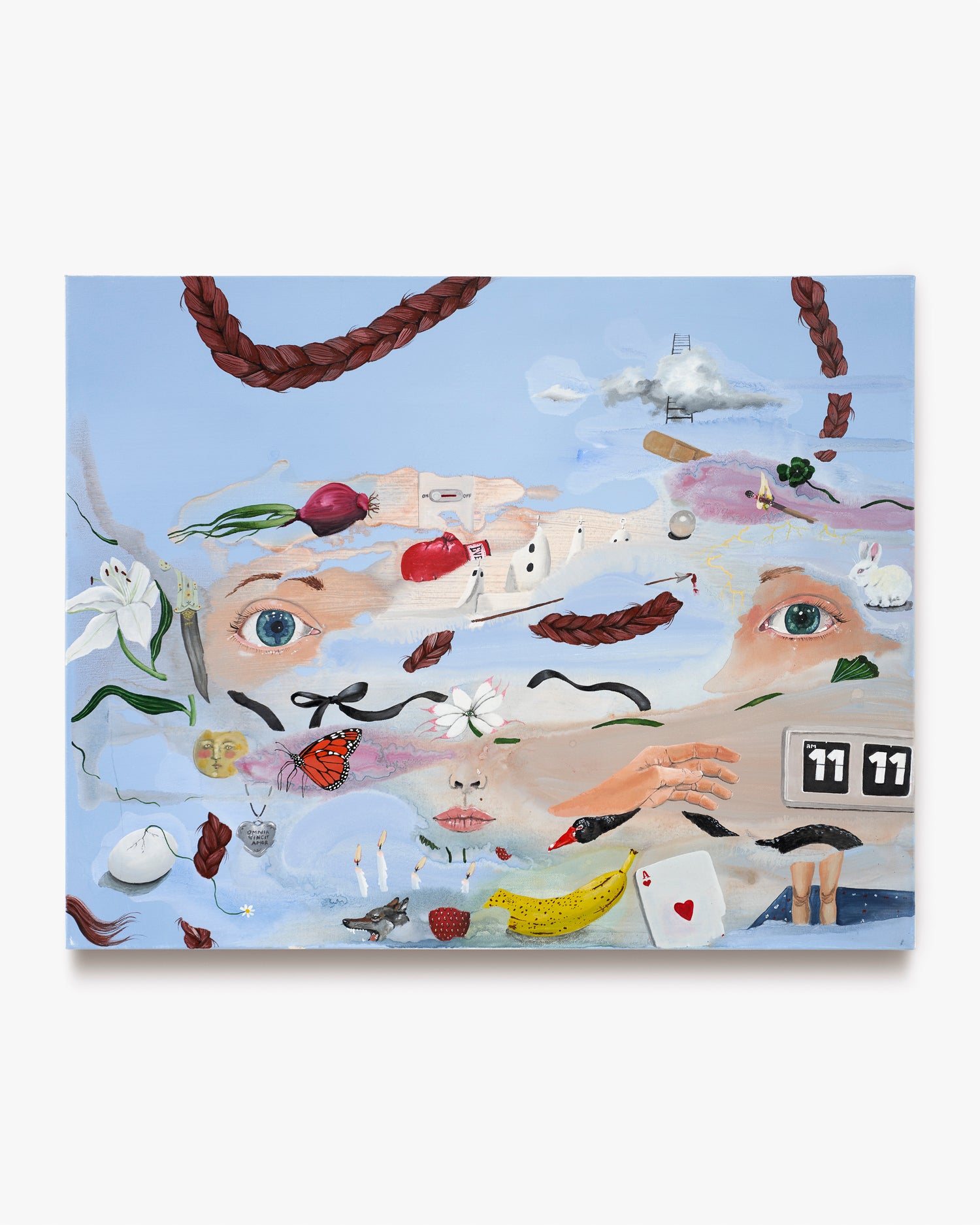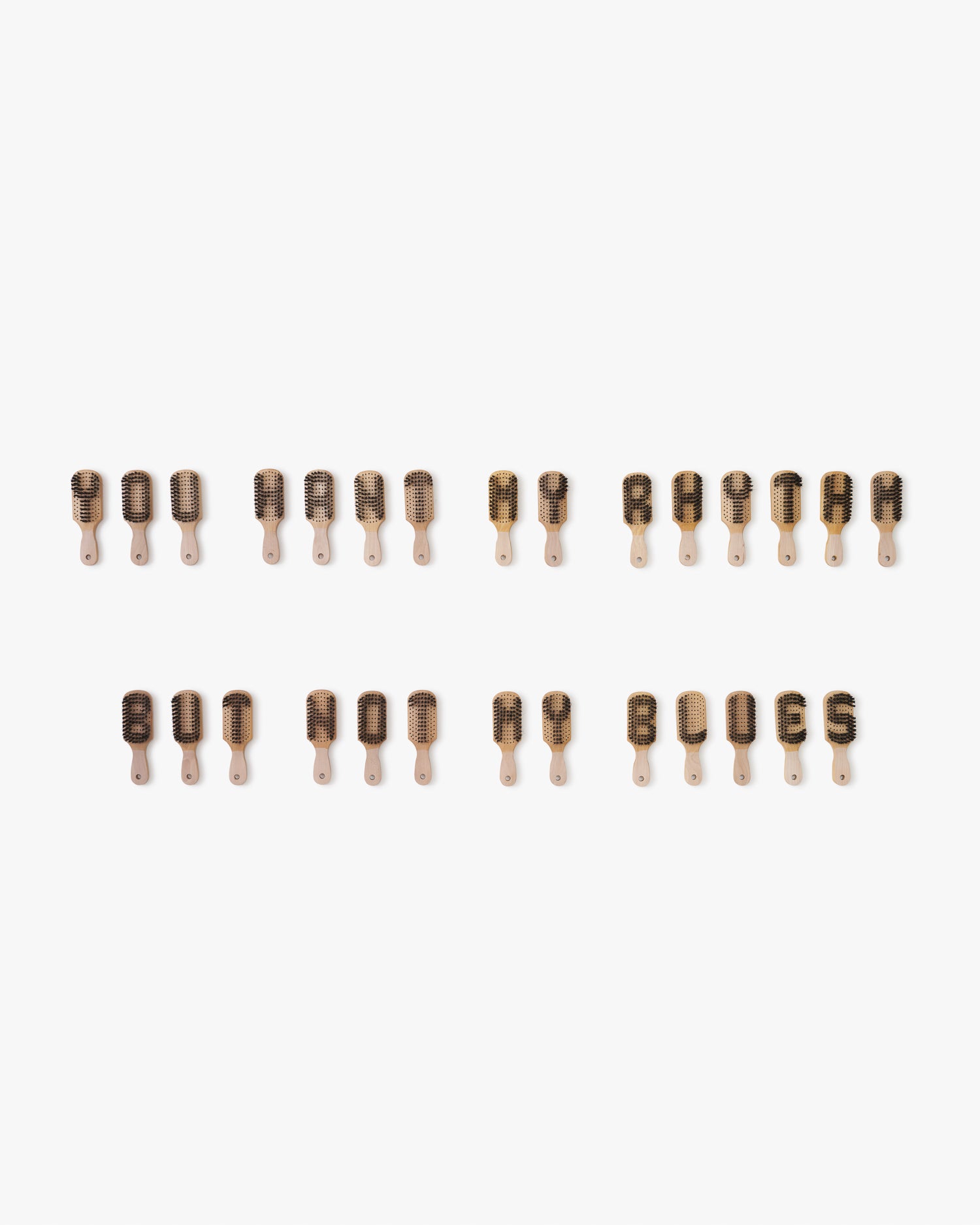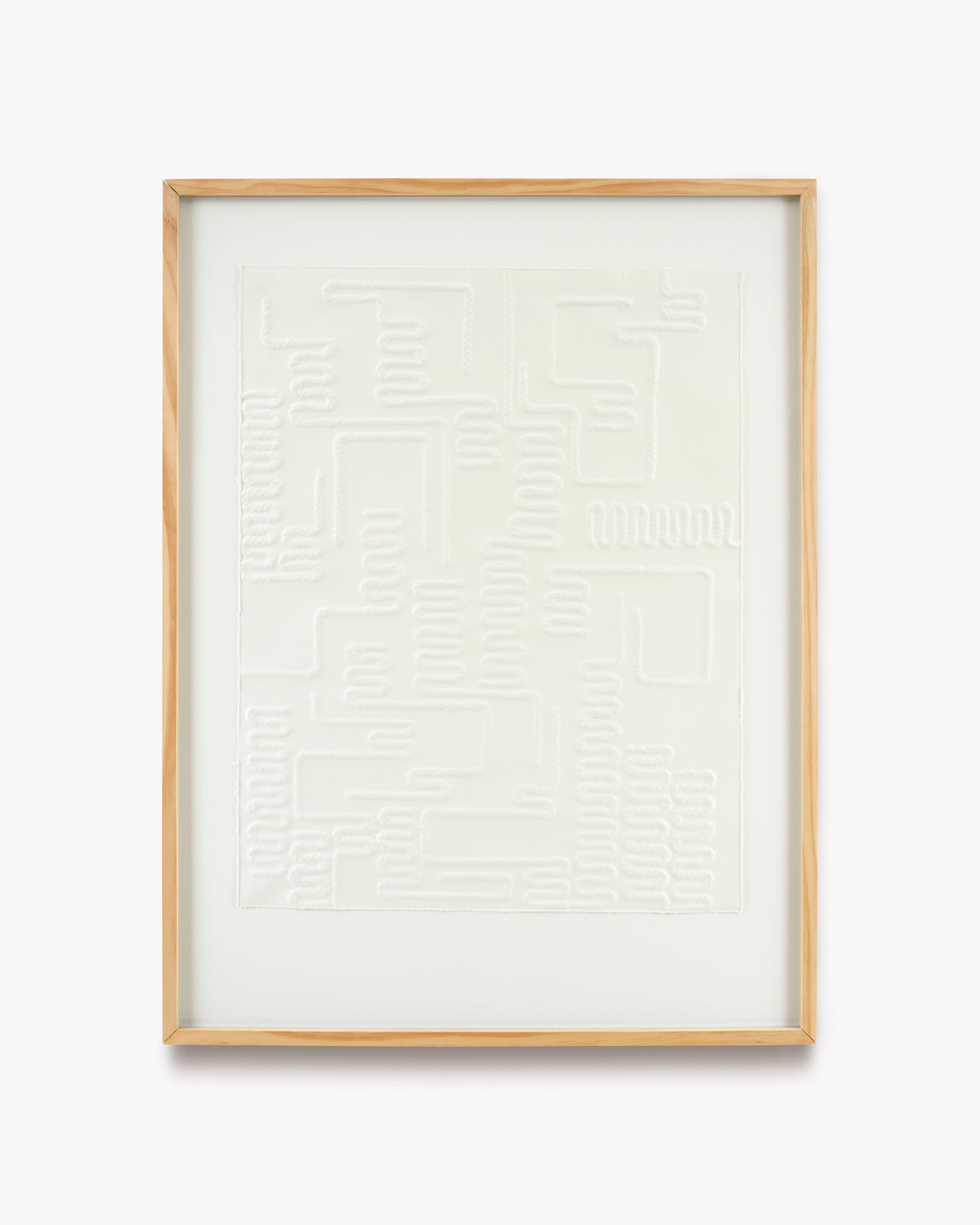
In her adolescence, gallerist Hannah Traore was inevitably changing—her body began to produce hair in places it had not before. Within that experience was a strong connection and sentimental attachment to her hair. Yet, like many Black women, Traore felt pressured to fit a mold and cut it—keeping it in a ziplock bag for years as if to commemorate her first step into womanhood. Now? Traore finds herself battling hair loss due to a thyroid condition.
But, in the bounds of an arduous experience comes a cathartic release in curating her latest exhibition Don’t Touch My Hair at her namesake gallery on Orchard Street in New York City. The title is an obvious nod to Solange Knowles’s song from her sophomore album When I Get Home. Fitting, as it serves as an anthem for Black women to feel empowered by their hair rather than dim their light to appease others; reflective of this intimate look at Traore’s relationship to hair and beauty.

“Hair is just always on my mind to this day. I think, ‘How can I have longer hair? How can I have thicker hair? How can I cut it so that it’s the way I want it?’ It was therapeutic, because it was fun to be able to play more,” Traore tells ESSENCE. “Doing the research, looking through, and curating, which I haven’t really been able to do since opening the gallery, made the topic of hair feel fun.”
In selecting pieces for her curation, Traore ensured each artist fit the vision and message she was trying to convey: that hair is not just hair. It’s a means of cultural expression. To execute, she tapped a diverse range of artists including fellow West African J.D. Okhai Ojeikere, who created hair as a sculpture, and Anya Paintsil who used her own hair in tapestries.

Additionally, as an homage to Traore’s Renaissance art studies—under the wing of Professor Penny Jolly at Skidmore College—a few of the artists showcase a modern take on Renaissance art. For one, Brianna Lance’s piece, Myself, is a painting of a blue sky background with red braided strands throughout it; reminiscent of the prominent Renaissance artist Hieronymus Bosch.
Meanwhile, Felandus Thames’s piece entitled Rhythm and Blues immediately grabs your attention upon entering the space. The brush bristles spell out “you want my rhythm but not my blues.” Rather than depicting hair in such a literal sense, brushes were used to relay a message about how Blackness is often celebrated, stolen from, and admired, but never fully respected by non-Black people. Another piece by Jasmine Haynes, Code, depicted embossed 100% human braiding hair in a similar form of a map, with a myriad of pathways.

And beyond the gallery being a showcase of the diverse hair experiences that stem from different communities, Traore reminds us that having these conversations encourages others along their journeys, too. “People would tell me how brave I was, and thanking me for sharing,” Traore explains of the feedback she received after sharing her curatorial essay. “I hadn’t really realized it was brave, because I’m such an open book. My friend told me the essay helped her talk about her hair loss,” she says. “So, I think talking about my journey is a way of protecting my crown. Sharing information makes it all less scary.”
Don’t Touch My Hair is on view until July 27th on 150 Orchard Street New York, New York 10002.








